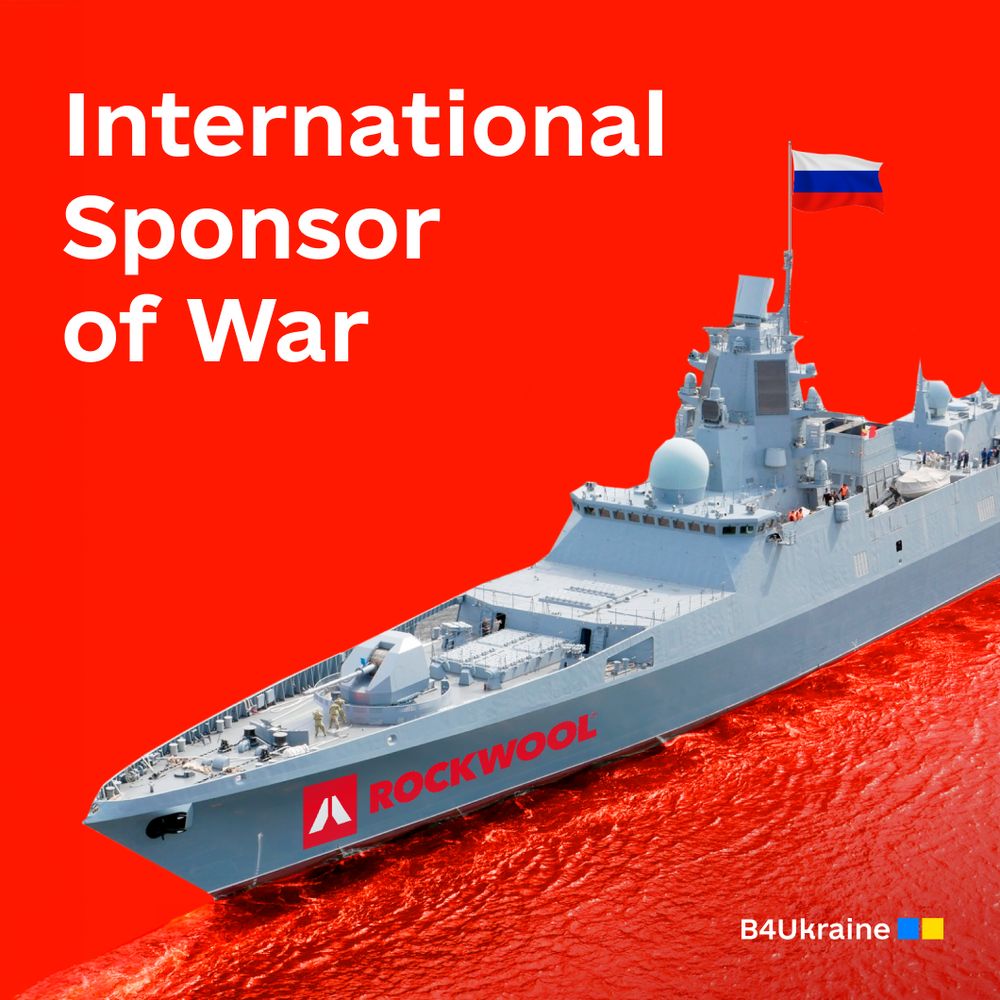
Ukraine’s anti-corruption agency has on Monday branded Danish insulation giant Rockwool an “international sponsor of war” for continuing to supply its construction materials via intermediaries to various Russian state institutions, including the Ministry of Defense.
The National Agency on Corruption Prevention (NACP) claims that in the years after the annexation of Crimea, Rockwool has supplied isolation material for at least 31 Russian navy ships and submarines — including battlecruisers, destroyers, nuclear submarines, frigates, landing ships, minesweepers and intelligence ships. “At least 52 contracts worth more than 329 million rubles [approx. $3.5 million] between Rockwool distributors and the Russian Ministry of Defense were identified,” NACP said. This corresponds to more than 10 % of the active vessels in Russia’s navy, which have been built with Rockwool’s products. Rockwool has also supplied materials for Russia’s Foreign Ministry HQ, Defence Ministry HQ, and Naval Command HQ (Admiralty).
Rockwool will also have to pay an extra tax in Russia because of its unusually large profits in the last couple of years. Some have dubbed it a “war tax” because some of the proceeds are said to go to the military. For Rockwool, this will be roughly 342 million rubles (approx. $3.7 million) or 50% of that if they choose to pay early.
So when Russian war criminals in the offices of the HQ of their ministry plan attacks targeting critical infrastructure, apartment blocks, schools, and hospitals across Ukraine, their secrets are kept by Rockwool’s insulation.
When Russians use the “Vsevolod Bobrov” ship in hostilities against Ukraine, they are able to do so, in part, thanks to Rockwool’s contribution to the construction of such ships.
When Russia “liberates” Mariupol from the face of the earth, killing thousands of its peaceful inhabitants, Rockwool products help the occupiers to construct their propaganda village there literally on the bones.
When Rockwool counts millions made from the Russian “defense,” Ukrainians are counting and mourning all lost lives.
But Rockwool has no intention of closing, selling or leaving its four factories in Russia.
“We do not work with the concept of red lines. We don’t spend that much time defining exactly which red lines there are,” said the CEO Jens Birgersson who gets DKK 17.4 million (approx. $2.5 million) a year to lead the group in an interview with DR back in spring 2022.
Yet Mr. Birgersson does seem to have found some time to draw a certain “red line” for the company, stating that Rockwool would pull out of Russia if Moscow, for example, launched a nuclear attack. Is this the position of a responsible business from an EU country?
However, Rockwool claims that it doesn’t have a customer relationship with the Russian military and that it “fully respects the sanctions applicable at any time.” Danish authorities may disagree.
Every multinational business remaining in Russia is contributing to human rights abuses in Ukraine — either indirectly, by making tax contributions to the Kremlin — or directly, by helping to conscript employees and provide resources to the Russian army, as per requirements of Russia’s Partial Mobilization Law. Rockwool employs 1,200 people in Russia and it is unknown how many of them are eligible for mobilization.
If CEOs cannot put human rights and global security over profit, it’s time for governments to step in and stop corporate complicity in Russia’s crimes against humanity in Ukraine.
The B4Ukraine Coalition urges the Danish government to issue business guidance for all Danish companies still in Russia, outlining all financial, reputational, legal and human risks associated with continued business operations in the aggressor state. Excluding Danish companies with continued business in Russia from any participation in national contracts could provide an effective way of persuading corporate actors to stop fueling Russia’s war machine. We also call on Rockwool’s largest business clients to reconsider their business’ relationship with a company whose dealings in Russia led to its designation an “international sponsor of war.”